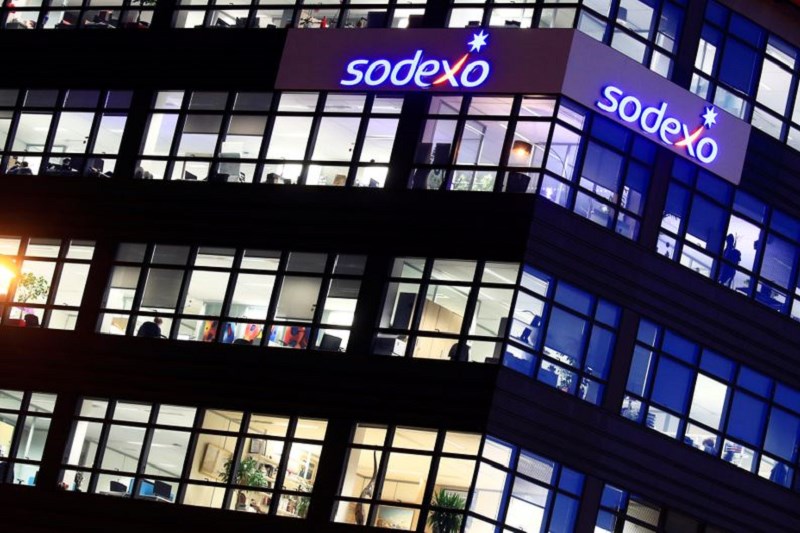IREN proposes $875 million convertible notes offering due 2031
Investing.com -- Goldman Sachs cut its Sodexo (EPA:EXHO) rating to Neutral from Buy on Wednesday, citing weaker organic growth and margin outlook, as well as a lack of catalysts that could lead to a re-rating.
The bank also lowered its 12-month price target to €73 from €96, reflecting reduced earnings estimates and a lower valuation multiple.
The company’s shares fell 1.5% in Paris trading.
The downgrade follows Sodexo’s pre-release of its first-half fiscal 2025 results, which fell short of expectations.
Organic growth in the second quarter was 2.4%, significantly below consensus estimates of around 4.4%, with North America performing particularly poorly.
“Sodexo reported weaker-than-expected organic growth trends in 2Q, primarily driven by North America, as well as in Europe,” Goldman analysts led by Ben Andrews noted.
Margins also missed, especially in Europe and the Rest of World segment, despite a slight improvement in North America.
In response, the company cut its full-year guidance. It now expects organic growth of 3-4%, down from a prior range of 5.5-6.5%. Margin guidance was also reduced to a 10-20 basis point increase at constant FX, compared to a previous 30-40bps improvement.
Goldman noted that Sodexo’s equity story had been based on closing its valuation gap with Compass Group (LON:CPG), which trades at a premium, as the French food caterer improved its operational performance on net new business and margins.
However, the analysts “now have less conviction in a catalyst path to drive a material re-rating of the shares on our 12-month horizon.”
The revised outlook reflects lower expectations for net new business and margin expansion. Goldman now forecasts a wider organic growth gap versus Compass and sees limited near-term momentum to improve that differential. EBIT forecasts were reduced by around 7% for the fiscal year 2025 (FY25) to FY29 period.
Sodexo now trades at more than a 40% discount to Compass on a 12-month forward EV/EBIT basis, one of the widest gaps in two decades.
Analysts view the company’s guidance downgrade as a significant setback to the investment case, which had hinged on improving operational performance and narrowing the valuation gap with Compass.
